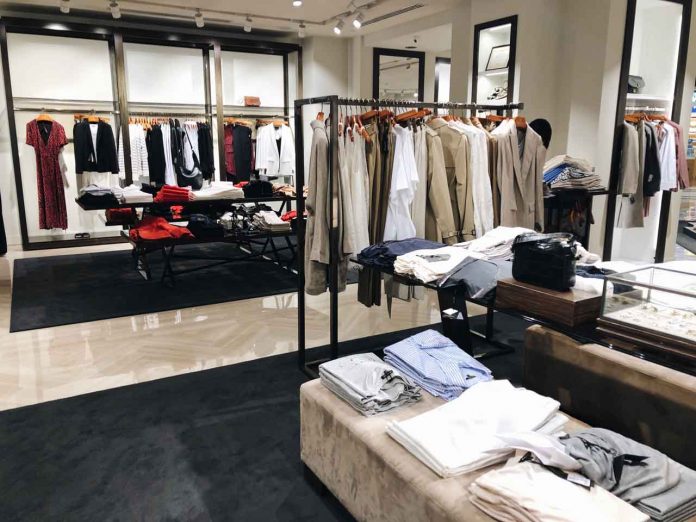A retail store refers to a sales place or building where there is buying and selling of goods and services on small scale. A retailer is a business person that buys goods on large scale directly from the company and breaks the bulk. The retailer then sells the goods to other sellers on a small-scale basis. Retail store maintenance depends on the type of goods and services that are sold.
This is due to factors such as volume, durability, facilities, equipment, flexibility, and frequency of movement in the organization. The responsibility of maintaining equipment and facilities depends on the management and the maintenance team in the organization. Maintenance is basic as it reduces the risk of losses as well as unnecessary expenses to maximize profits.
Maintenance strategies include:
Organization of shelves and furniture.
There needs to be a systematic way that organizes products on the shelves in the store. Customers and buyers enjoy an arrangement that ensures flexibility in accessing goods in the store. The retailer may decide to arrange products depending on sizes, gender as well as alphabetically to ease access to the goods.
The retailer or management is responsible for the overall planning of how goods are laid out and the direction to be provided to the customers. A conveniently arranged store encourages the customer to come back more often. The circulation of fresh air is as well enhanced.
Efficient stock-taking depends on the ease to monitor the movement of the store products.
Clean sales floor.
Cleaning is the general outlook of ensuring the cleaning of dust and cleaning the floor using a vacuum. Maintenance of a retail shop should also include equipment, lighting, and machinery technology.
The issue of sufficient lighting depends on the type of retail store and how much the industry depends on manpower availability. Customers are easily attracted to clean stores compared to when there is a visible layer of dust on the shelves or the floor.
The workers in a retail store have a personal responsibility to ensure that cleanliness and hygiene are maintained such as ensuring there is sufficient lighting and the toilet is always flushed.
Maintaining demand market.
In recent days, following current market trends, there has been stiff competition in every industry. Retailers have to go the extra mile in ensuring that they conduct proper marketing to ensure that the retail store runs consistently.
One has the responsibility of ensuring a web of the market is created to reach the market needs as well as the prospective buyers. Online advertisement on different platforms such as Twitter, Instagram, and Facebook among other online platforms contributes greatly. Owners of retail stores can link with market trends as well as be able to meet new wholesalers and investors.
Customer satisfaction is as well enhanced as the retailer fits into the market gap. This works to promote the brand and keep it at the front of the market need.
An enabling environment.
This mostly deals with the internal factors in the retail store. The interior factors comprise temperature, music, color, as well as interior décor. The retail store should be designed to conveniently suit the market need and attract customers.
In cases of high temperatures, the store should be fitted with room fans to create a conducive environment for customers while at the retail store. That encourages buyers to spend more time at the store and this promotes more purchases at the retail store. Some stores use music to attract customers to come and view the product on sale.
Depending on the type of store there should be colors that are attractive and concern the product on sale. An example is when the store is a cosmetic store and bright colors such as white and pink represent the lady products on sale.
Organizational management.
Organizational management goes beyond interior affairs but rather customer satisfaction. There needs to be a smooth operation in the organization from when the customer walks into the point, the service accorded, and the after-sales services provided. The workers in the retail store should show a positive attitude to the customer and provide necessary assistance when need be.
The services provided by the workers influence the need of the customer to visit the store more often. When there is smooth management the store values its customers as the need to maintain them to be purchased from the store. Creating a good relationship between the customers as well contributes to customer satisfaction which may include treatment with decorum.
Quality of goods and services on sale.
The current trend in the present day brings about high competition between existing industries and new industries. When one wants to maintain their position in the competitive market there is the need to ensure the provision of quality goods and services.
This is enhanced by ensuring goods are of high quality hence customers may not mind spending whatever amount of money as long as they get their required quality product.
Customers associate low-quality products with poorly performing stores, there is, therefore, a need to maintain quality even in the services provided. This promotes customer satisfaction as well as the need to be associated with the quality provided.
In conclusion, to have a smooth running in the maintenance of a retail store, certain factors are considered to fit in the ever-evolving and dynamic market industry. More often than not, customer satisfaction creates a basis for strong retail store maintenance.
The satisfaction of both the owner and the customer is key as both benefit equally from the product. A retail store runs smoothly when there is a goon inter-relation between the employer, employee as well as buyers.







